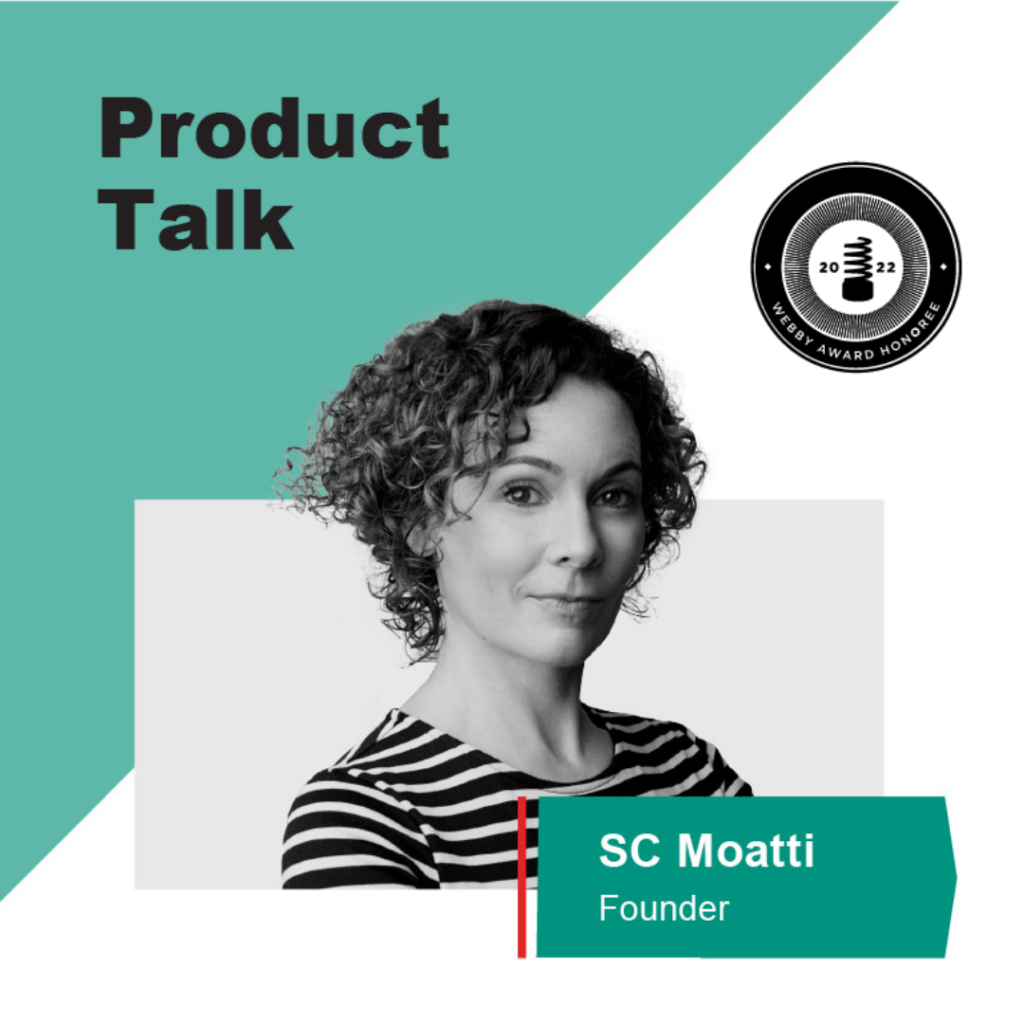Note to our listeners: Vowel is offering a special discount to the Products That Count community. Sign up for Vowel free here, then go to your account and upgrade to “Business.” Use the code PRODUCTSTHATCOUNT for 3 months free of unlimited seats on the Business plan.
What does it take to be a successful product manager? In this episode, Vowel Head of Product Anna Marie Clifton speaks with Ubiety Technologies CPO Nacho Andrade about her journey from earning a degree in Medieval Art History to entering her dream career as a product manager. From there, she speaks to how aspiring product managers can enter the industry and the skills and attributes that make an excellent product manager.
Subscribe to the Product Talk podcast on Spotify and Apple Podcasts and catch every conversation with leading product executives. New episodes go live every week.
On how aspiring product managers can enter the industry
“It can take a really long time. It took me about two years from identifying that product management in tech was what I wanted, to having my first full-time product manager role. I did a lot of things in those two years to get there. There were lots of night and weekend projects. I did little coding stuff on the side just to make sure I had something to point to in terms of technical skills.
“Getting over that hump is actually a beautiful signifier to an organization that you’ll be able to get over all the humps in the organization. If someone has to create a path for you to get into product management, you may not be the kind of person who can create a path as a product manager. And that’s what product managers do. They create paths in organizations to get good things to customers. Learning how to create your own path is actually part of the skill set of being a great product manager.
“I created a couple of things. One of them was a landing page product. I had my landing page where you could sign up, and no one signed up. But in the course of going through the customer developer, I ended up in a lot of conversations with people. That got me into the next conversation with a friend who said, I need some help working on this thing that I’ve got people using. So I built a little app on top of the Yelp API, just to see if I could figure out how. I think PMs need to understand what they’re asking from an engineering team, and whether it’s going to be easy or not.”
On skills required to become a product manager
“I think grit and persistence are two really big ones. Being really, really good at figuring out how to navigate an organization is important. At most organizations, once you’re past 50 people, it starts being a key skill that PMs need. You can learn that skill by figuring out how you navigate what’s going on in the world around you. And how do you figure out how to get in contact with someone at an organization?
“Practice getting really, really good at listening. And practice getting really, really good at predicting what someone is going to say or do. This is a skill that I teach for life in general. Right before you say something, try to predict what the person’s reaction is going to be. And if they react very differently, if they say something very different, that’s a signal. Maybe there wasn’t the full information exchange that you thought there was. When you start doing this over time, and then you measure the result, it really helps you tune in to how to communicate with people very effectively.
“Making a prediction and measuring the result is also really great for tons of things. If you see a product that just launched, is it a good product or not? Make a prediction, like what the app downloads are going to be in a year. Then, measure the result. This is something I used to do with my team at Yammer. We would play with new products every week.”
On the willingness to be wrong as a product manager
“I’m evolving new ways to understand areas in which I’m not already an expert. The willingness to be wrong is the major key. But also even more so to demonstrate to your team, and especially people who are reporting to you, that you’re willing to be wrong. You should encourage them to say, ‘Hey, I think you’re wrong. I actually want to do it this other way.’ Or, ‘I think this other thing is better.’ There’s huge value in that.
“There’s that famous quote, the best way to get the correct answer on the internet is to put the wrong answer out there and someone will correct you. Once something’s out there, people will mold and play with it. I often put ideas out there or make statements. Being in charge, putting a lot of ideas out there, and not always being right, means that it’s easy for a lot of incorrect things to get out to customers.
“So I’ve put a lot of effort into firmly establishing that I’m often not right. And encouraging calling it out. And whenever it happens to be like, oh, yeah, you’re right. That sets the tone, psychological safety, and emotional environment to have people really thrive and bring their best selves. And for us to operate as our best organization, and not just the best that the person at the top can do.”

About the speaker
About the host
Nacho is an Evangelist for all things product, advocating for innovation, diversity, and building amazing products. Nacho has spent over 10 years in product roles ranging from startups to enterprise in industries like education, healthcare, finance and gaming.